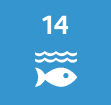Share the page
Encourage recovery of the fish stocks on the Mesoamerican Reef (MAR Fund )
Project


-
Project start date
-
Status
In progress
-
Estimated date of project termination
-
-
Project financing date
-
-
Financing duration
-
3 YEARS
-
Type of program
-
FFEM
-
Global financing amount
-
3 496 100 €
-
FFEM financing amount
-
1 115 800 €
-
Country and region
-
Mexico
-
Location
-
Mexique, Belize, Guatemala, Honduras
-
Type of financing
-
Grant
-
Partners
-
Comunidad y Biodiversidad (COBI), MARISLA Foundation, FUNDAECO, Healthy Reefs for Healthy People Initiative (HRI) and other donors, MAR Fund
-
Beneficiaries
-
MAR Fund



The fishing resources on the Mesoamerican Reef are indispensable to the food security of local populations as well as to the economic development of their neighbouring countries. To encourage sustainable fishing in the region, the FFEM is supporting the private environmental fund MAR Fund, in its protection actions.
Context
The largest reef system in the northern hemisphere and second-largest in the world, the Mesoamerican Reef (MAR) is home to a teeming biodiversity and forms marine ecosystems and varied coastlines. Among the revenues from tourism and fishing, the resources generated by exploitation of the reef are indispensable to the populations of Mexico, Belize, Guatemala and the Honduras as well as to these countries’ coastal economies. However, non-sustainable fishing practices have led to a 23% decline in the biomass of commercial fish stocks across the entire reef.
To encourage the restoration of reef fishing areas, the MAR Fund is working to enhance the protection and monitoring of a network of reproductive (or spawning) zones for these fish. This primarily involves the establishment and monitoring of the first regional protection network for these areas, identified as areas critical to the life cycle of commercial species.
Description
The project has three components:
- Understanding and protecting the Cayman Crown area along Belize and Guatemala. The site will be the subject of scientific exploration in partnership with the fishing communities and other members of the neighbouring populations.
- Establishing a network of seven sentinel multi-species spawning sites. A regional workshop will bring all the actors together in order to approve collective protocols, banking arrangements and the analyses to be produced.
- Encouraging social acceptance of spawning zone protection. This plan will institute “citizen science” to encourage better understanding of environmental problems among the local communities.
Impacts
- Gaining legal recognition of Cayman Crown and sustainable management of the site.
- Promoting shared monitoring of a network of sentinel spawning sites across the four countries of the Mesoamerican Reef
- Producing annual reports and a final report, making the most of lessons learned.
- Understanding the health of the MAR ecosystems and of the potentials for restoring stocks and connectivity.
- Understanding the impact of climate change on the spawning grounds, benefiting both the fish and the communities who depend on them.
Exemplary and innovative characteristic
This project offers co-management solutions for the sustainable use of natural resources. The project also provides support and technical advice to local partners to monitor and protect the network of seven sentinel sites. This data capture will help steer changes in conservation policies at national, regional, and even global levels while integrating the populations into the conservation process. The data generated may ultimately document the impact of climate change on the multi-species spawning sites.
Sustainable Development Goals
ODD11 Sustainable cities and communities

ODD14 Life below water

ODD17 Partnerships for the goals



